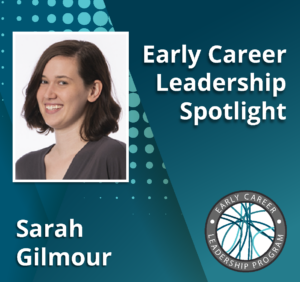 The National Science Foundation (NSF) has issued a Dear Colleague Letter inviting those with current research support to request supplemental funding to enhance the training experience of graduate students.
The National Science Foundation (NSF) has issued a Dear Colleague Letter inviting those with current research support to request supplemental funding to enhance the training experience of graduate students.
Directorate for Biological Sciences (BIO)
PIs supported by NSF’s Division of Molecular and Cellular Biosciences (MCB) may request additional support for their PhD students in ways that enhance their professional development without negatively impacting dissertation research or increasing the time to degree.
Funding is available to support two types of activities. First, funding may be requested to support student participation in experiences that extend beyond their discipline and/or broaden their career options. For example, funds may be used to support the student for a brief internship period in the private, non-profit or academic arena, or to obtain specialized skills in a cross-disciplinary setting. Second, funds may be requested to compensate trainees to attend professional development courses (not formal degree programs) that enhance skills needed to be competitive in the job market. Courses with special emphasis on training in quantitative biology and/or acquiring skills that improve broader impacts (e.g., communicating science to the public) will be considered a priority.
MCB expects to make no more than 15 awards per year of $6,000–12,000 each, and requests will be considered on a first-come, first-served basis. Please contact one of the cognizant program directors for more information as soon as possible. All requests must be received by May 20, 2016.
Other programs within the BIO Directorate are not participating at this time.
Directorate for Education and Human Resources (EHR)
Grantees from EHR—as well as other Directorates—may apply for supplemental funding to support doctoral student participation in “education-related training experiences that broaden their skill sets and their career options, preparing them for a variety of STEM-related careers.” Specifically, EHR will support three types of activities:
- Participation in internships, training experiences, or collaborative research with private, non-profit, government, or academic organizations that promote informal STEM learning (e.g., museums; film, broadcast media, and science journalism; digital media and gaming; citizen science; school and community programs). Opportunities can include, but are not limited to, communication and media training programs that prepare students to be effective communicators to public audiences, internships focused on informal STEM learning research and evaluation, and training in exhibit and program design and delivery.
- Participation in internships, training experiences, or research and development activities in collaboration with education researchers and/or social science learning scholars to acquire new teaching skills and competencies, to gain exposure to new STEM educational research areas, or to test novel approaches for improving the engagement of K-12 or undergraduate students in authentic, career-relevant experiences. For example, doctoral students might spend a visiting term with a discipline-based education research group to learn about its research foci and relevant methodologies.
- Development and piloting of new and innovative programs for groups of graduate students focusing on (a) specific transferable professional skills or (b) career development and preparation for a variety of STEM career pathways. For this activity, projects must include active NSF Graduate Research Fellowship awardees and Honorable Mentions from a single campus or from several institutions within a region, including minority-serving institutions. Programs should include a plan to ensure participation by Fellows and Honorable Mention recipients who are women, members of underrepresented minority groups, persons with disabilities, and veterans. (This opportunity is limited to lead investigators of Graduate Research Fellowship Program institutional awards.)
The first two opportunities noted above should benefit individual students but may be requested by PIs on any active NSF award.
Requests will be considered on a first-come, first-served basis. Please contact the cognizant program director for more information as soon as possible. All requests must be received by May 31, 2016.
Other Directorates
Information about opportunities from other NSF directorates may be found in the Dear Colleague Letter.
Additional Information:
- “Dear Colleague Letter: Improving Graduate Student Preparedness for Entering the Workforce, Opportunities for Supplemental Support” (NSF 16-067), April 15, 2016.
- “New Funding Opportunity,” MCB Blog, April 22, 2016.












